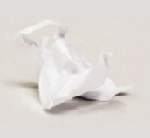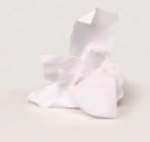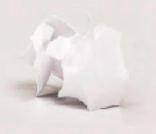
Writers and translators often maintain that their real home is language. In whatever tongue they speak or create, wherever they live or travel, ultimately their only real home is language-both a rational and an irrational miracle, which helps them recreate reality: to give voice to, and to tell of, their own experience and that of the world through poetry, prose, drama and translation. The English author Virginia Woolf proposed that writers need few worldly goods in order to create-just money and a room of their own. This need is more keenly felt in today’s society, where a writer, like everyone else, is caught up in the nervous flow of daily life. It is, therefore, no wonder that creative centres for writers and translators have become so highly valued and well-loved, particularly in Europe. For a short while, you are away from your usual existence, from the everyday and life’s responsibilities, and can allow yourself the pleasure of being a full-time writer. You recreate reality and are together with colleagues: brothers and sisters in language. You feel calm in the knowledge that in this rational and pragmatic world there are many others who, like you, devote themselves to the difficult, beautiful and exclusive task that is working with language. The Baltic Centre for Writers and Translators in Visby, Gotland, Ledig House in America, Casa Pantrovà in Switzerland, the Writers’ and Translators’ House in Käsmu, Estonia, and many, many others are now joined by Ventspils Writers’ and Translators’ House in Latvia.
Here, on the vast world map, is another place where language lives, where experiences meet, where each writer tells the same ancient mystery-of life, death and love-in his or her own language. The historic former town hall, located on the square between the renewed city library and the Lutheran church, has been remodelled as a centre for writers and translators from around the world, providing an opportunity for them to meet and work.
The writers’ studies have modern facilities but have not lost a touch of history and are ready to offer a warm haven to the Ventspils House language-travellers. The inner garden and sauna create a feeling that the process of writing has some connection to faith and divine revelation, accompanied by a succumbing to some sinful joys...
Here, everything is in one place-solitude and conversation, work and respite, daily bread and wine. When weary of work, residents can wander round Ventspils-a well-maintained coastal city, where, in each house, street, yard and square, the past is just as important as the future. Having walked through a green park, the language-traveller suddenly finds himself on the beach. He is free to go wherever his eye takes him, in one direction or the other-kilometres of beautiful, white, sandy coastline stretch into the far distance: just the sky and sea on one side, a strip of green forest on the other, and the walker, who treads the sand and opens his mind to the creative moment.
Who knows, perhaps this century’s most beautiful literary stories of life and love will be created right here, at the Ventspils house of language. Let it happen!
Nora Ikstena

riters and translators often maintain that their real home is language. In whatever tongue they speak or create, wherever they live or travel, ultimately their only real home is language-both a rational and an irrational miracle, which helps them recreate reality: to give voice to, and to tell of, their own experience and that of the world through poetry, prose, drama and translation. The English author Virginia Woolf proposed that writers need few worldly goods in order to create-just money and a room of their own. This need is more keenly felt in today’s society, where a writer, like everyone else, is caught up in the nervous flow of daily life. It is, therefore, no wonder that creative centres for writers and translators have become so highly valued and well-loved, particularly in Europe. For a short while, you are away from your usual existence, from the everyday and life’s responsibilities, and can allow yourself the pleasure of being a full-time writer. You recreate reality and are together with colleagues: brothers and sisters in language. You feel calm in the knowledge that in this rational and pragmatic world there are many others who, like you, devote themselves to the difficult, beautiful and exclusive task that is working with language.
..
The Baltic Centre for Writers and Translators in Visby, Gotland, Ledig House in America, Casa Pantrovà in Switzerland, the Writers’ and Translators’ House in Käsmu, Estonia, and many, many others are now joined by Ventspils Writers’ and Translators’ House in Latvia. Here, on the vast world map, is another place where language lives, where experiences meet, where each writer tells the same ancient mystery-of life, death and love-in his or her own language. The historic former town hall, located on the square between the renewed city library and the Lutheran church, has been remodelled as a centre for writers and translators from around the world, providing an opportunity for them to meet and work.
The writers’ studies have modern facilities but have not lost a touch of history and are ready to offer a warm haven to the Ventspils House language-travellers. The inner garden and sauna create a feeling that the process of writing has some connection to faith and divine revelation, accompanied by a succumbing to some sinful joys...
Here, everything is in one place-solitude and conversation, work and respite, daily bread and wine.
When weary of work, residents can wander round Ventspils-a well-maintained coastal city, where, in each house, street, yard and square, the past is just as important as the future. Having walked through a green park, the language-traveller suddenly finds himself on the beach. He is free to go wherever his eye takes him, in one direction or the other-kilometres of beautiful, white, sandy coastline stretch into the far distance: just the sky and sea on one side, a strip of green forest on the other, and the walker, who treads the sand and opens his mind to the creative moment.
Who knows, perhaps this century’s most beautiful literary stories of life and love will be created right here, at the Ventspils house of language. Let it happen!
Nora Ikstena
Read more
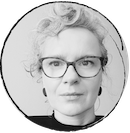
International Project Coordinator of the Ventspils House
Rita Dementjeva
rita![]() latvianliterature.lv
latvianliterature.lv

International Project Coordinator of the Ventspils House
Brenda Lelie
brenda.lelie![]() ventspilshouse.lv
ventspilshouse.lv
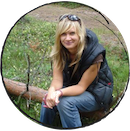
Board member
Ieva Balode
ieva.balode![]() ventspilshouse.lv
ventspilshouse.lv
+371
26449426

Accountant of the Ventspils House
Iveta
Līberga
iveta.liberga![]() ventspilshouse.lv
ventspilshouse.lv
+371
26176424
Bank details:
SIA "Starptautiskā Rakstnieku
un
tulkotāju māja"
Registration No 41203024801
State Treasury
Account
LV68TREL9220920000000
Swedbank
Account
LV67HABA0551010754947
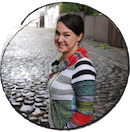
International Project Coordinator of the Ventspils House
Inga Bodnarjuka-Mrazauskas
inga.bodnarjuka![]() gmail.com
gmail.com
Mob.phone: +371 25936493
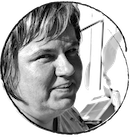
Assistant manager of the Ventspils House
Zeltīte Freiberga
zeltite.freiberga![]() ventspilshouse.lv
ventspilshouse.lv
+371
26589712, +371 63623596
Bank details:
SIA "Starptautiskā Rakstnieku
un
tulkotāju māja"
Reģistrācijas Nr. 41203024801
Swedbank
Konta Nr.
LV68TREL9220920000000
Swedbank
Konta Nr.
LV67HABA0551010754947
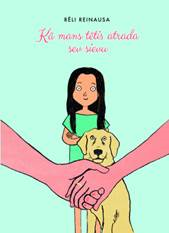 |
Reeli Reinaus and Daila Ozola meet pupils Estonian writer Reeli Rainaus and Latvian translator Daila Ozola will meet pupils at Ventspils Gimnasium to talk about Reeli's book "Kā mans tētis atrada sev sievu". Reeli Reinaus is a folklorist, writer for children and youth. She graduated from the Tartu Academy of Theology, and received a master’s degree in Estonian and comparative folklore from the University of Tartu. On 2018 Reinaus received a MA degree in Documentary Film at the Baltic Film, Media, Arts and Communication School of Tallinn University. She has written more than 30 books for children and young adults, and has won numerous awards in the My First Book children’s story competition, as well as in the Youth Novel Competition. The author has a flair for writing about young adults’ everyday lives and problems in the crime and fantasy formats. Some of her books are also published in Latvian. Daila Ozola is a translator of Estonian literature into Latvian. In 2018 graduated from Liepaja University's Master's Degree in Writing, since have been writing and translating from Estonian. Author of the children's book "KLIK-KLIK!" Reeli Reinaus residency is supported by Nordic Council of Ministers
|
 |
Kurzemes Poetry Days Kurzemes Poetry Days is a festival what takes place every year in Kurzeme region in different cities and this year in Ventspils. Poets from the region will come and have readings in different places of Ventspils. Kurzemes Poetry Days will start at 11.00 with the event "Garainis" in the Parventa library. Tārgales iela 4. The exhibition "Plein-air in Pholx" will be opened, with the works of Daiga Krūze, Kristīna Keire, Ieva Rupenheite and Jānis Kupčs, members of the plein-air of Pope Manor. This will be followed by a discussion about creativity led by Dace Vašuka and poetry reading by Ieva Rupenheite . Maija Kalniņa will perform songs with Olaf Gūtmanis and her own poetry. At 13:30 poet Iveta Dārzniece-Tarvida , will read her poetry in the new Gāliņciema library, Kuldīgas iela 138. At 14:30 nearby, Laura Vinogradova will read her poetry in local Ventiņ dialect at the Herberta Dorbes Museum, Ērgļu iela 1. At 16:00 Andris Akmentiņš will read his poetry in the Livonian Order Castle, accompanied with pianist Andrejs Martiņš Grīnbergs, Jāņa iela 17 At the end of the poetry days at 17:00, poet Jānis Vādons will read his poetry on the roof of the VIZIUM science center and there will be also readings by Kurzeme poets, Rūpniecības iela 2.
|
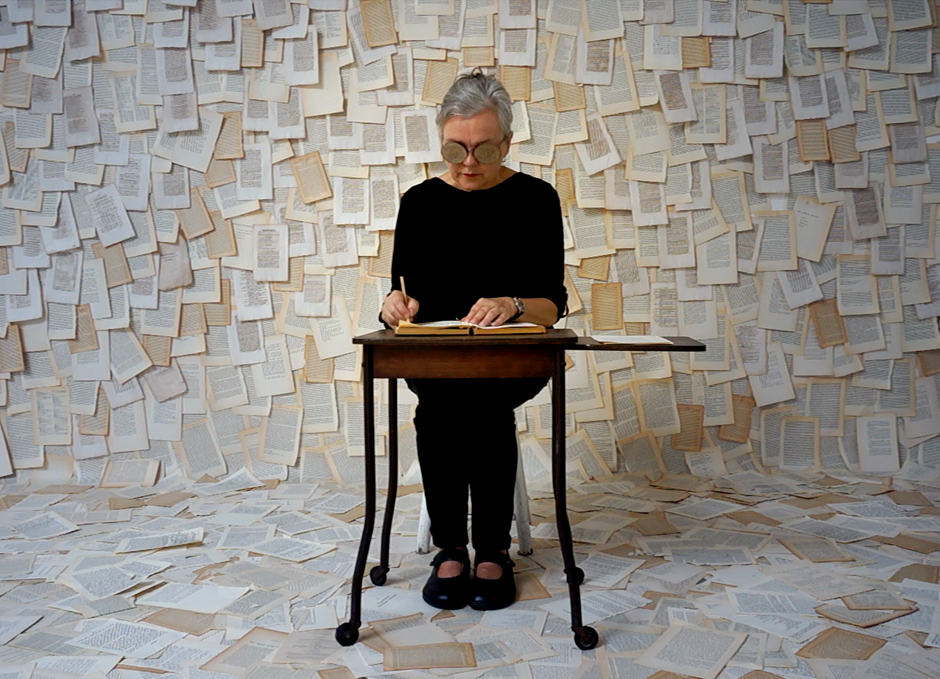 |
Tasmanian artist and writer commemorates 14 June deportations with a performance at Ventspils market Tasmanian artist and writer, Brigita Ozolins, will commemorate the 1941 deportation of 15,500 Latvians to Siberia with a one-day performance on 14 June in the Ventspils Market. Starting in the morning, she will nail copies of the top secret NKVD documents that list the names, birthdates and addresses of those who were arrested on 13 and 14 June in 1941 to the wooden walls of the market stage. The lists have been sourced from These Names Accuse, a book that documents Order No 001223, signed by the Deputy People’s Commissar of Public Security of the USSR, Serov. Brigita will continue the performance by handwriting the names of all the people who were arrested in Ventspils on sheets of paper. After completing each page, she will ring a bell and nail it to the walls of the stage alongside the other pages. The performance will start at 9am and finish at 6pm. IMembers of the public will be permitted to climb onto the stage to view the performance and the pages nailed to the stage walls. Brigita is a resident at the International Writers and Translators house where she is editing a novel she has written about her mother’s escape from Latvia during WW2. She said that while the performance commemorates all the deportees of June 1941, it is also dedicated to the memory of her late mother, Mirdza Ozolins, and her mother’s friend, Aldona Ikmanis, who was amongst the deportees. ‘My mother was fourteen years old when she witnessed Aldona and her family being arrested by the Soviets on 14 June, 1941,’ said Brigita. ‘She never saw her friend again but two years ago, we found out that Aldona was released from a gulag in Novosibirsk in 1956. We both cried, happy that Aldona had been freed, but deeply saddened because she had spent fifteen years in a labour camp in Siberia.’ Brigita is well known in Tasmania for her performances and large-scale installations that explore the relationships between language, culture, history, writing and codes. A first draft of her book was longlisted for the Richell Emerging Writers Prize in 2021 and in 2022, she was awarded and Australian Society of Authors mentorship. She has also received a Latvian State Capital Culture Foundation grant to support her residency. She will be resident at the Writers House until the 28 June. |
|
|
Artis Ostups (Latvia) Artis Ostups (1988) is a Latvian poet, he has studied philosophy at the University of Latvia, and attended the Charles University in Prague, he is currently editor in chief of the online magazine Punctum, as well as an author of essays on literature and philosophy. His poems have been published in some of the major literary periodicals and magazines in Latvia, such as Karogs, Kultūras Forums, Latvju Teksti, and the Satori.lv web-magazine. Like for all young poets, translation of highly meritorious literary works has been part of Ostups' creative journey – he participated in the translation of Walt Whitman's selected works in 2011, and alongside Arvis Viguls worked on the translation of the collection of Dmitry Sumarokov's poetry Café Europe, nominated for the Annual Literary Award in 2014. His début collection Comrade Snow/ Biedrs Sniegs (2010) was praised instantly by many readers, and nominated for the Latvian Literary Award as the best début, and received the special Ojārs Vācietis award. His second collection Photograph and Scissors/ Fotogrāfija un šķēres (2013) has been widely reviewed by literary critics and attentive readers. His writing is characterised as clear and precise, genius and professional, powerful and distilled, without redundant and abundant colours – in stead he uses words to create sharp black&white pictures that connect history and present, imagination and awareness of actual and tangible experience. His poetry is unobtrusive and highly sensitive, framing exquisitely meaningful moments as photographies, pregnant with underlying contexts. Elements of prose-poetry are often met in his writing. Poems by Artis Ostups have been published in English in the Literature Across Frontiers platform, translated into German, Russian, French, Czech, Slovenian, Croatian, and Lithuanian, and his talent has been recognised in the international literary circles. In 2016, his third collection of poems, Gestures, was published. |
|
|
Sergej Timofejev (Latvia) Sergej Timofejev (1970) is a poet, journalist, translator, and DJ. He is the author of seven poetry collections. His poems are translated into English, Italian, Swedish, German, Ukrainian, and other languages, and he actively participates in poetry festivals around the world. He was one of the first in the post-soviet cultural space to invent the genre of poetry-video, his first video-poetry work Orchestra Rehearsal was made in 1994 in collaboration with filmmaker Victor Vilx. He is one of the founders of multimedia poetry project Orbita – a creative group of poetsand artists, whose works create dialogue among various genres (literature, music, video, photography, VJ, web, etc.) and cultures. Orbita has organized poetry-video and multi-media art festivals Word in Motion (Latvia, 2001, 2003, 2007, 2009 and 2011). “Orbita” also strives to seek new ways of print publishing and book design. Sergej Timofejev lives in Riga, writes in Russian, publishes his texts in bilingual Russian-Latvian books and continues to mix modern poetry with other art-forms and media. |
|
|
Aušra Kaziliūnaitė (Lithuania) Aušra Kaziliūnaitė (b. 1987) is an award-winning Lithuanian poet, writer, artist, and philosopher. The author of five poetry collections, her work has been translated into over 20 languages, with books published in English, German, Russian, and Polish. She is a recipient of the Berlin Fellowship from the Akademie der Künste (2023) and participated in the Kyoto Writers Residency (2024) and the International Writing Program at the University of Iowa (2018). Kaziliūnaitė holds a PhD in Philosophy and currently works as a Postdoctoral Fellow at the Vilnius Academy of Fine Arts and as an Assistant Professor at Vilnius Gediminas Technical University. She lives and works in Vilnius, Lithuania. Residency is co-funded by the Lithuanian Council for Culture mobility grant. |
|
|
Ralph Grüneberger (Germany) Born in Leipzig in 1951, studied at the Johannes R. Becher Institute for Literature in Leipzig from 1978 to 1982. Since 1978, numerous publications (lyrics, poetry, literary criticism, children's books, prose, journalism) and awards: scholarships in Germany, the Netherlands, Hungary, the USA, and Latvia, including the Menantes Prize for Erotic Poetry and the Irseer Pegasus. Reading tours to France, Austria, Poland, Hungary, the USA, and Slovakia. Invitations to international poetry festivals (including Corfu, Paris, and Struga); publications include Flandziu, Das Gedicht, die horen, ndl, Matrix, oda, Ostragehege, Palmbaum, SIGNUM, SINN UND FORM, and Temperamente, as well as foreign literary magazines and anthologies (France, Greece, Croatia, Luxembourg, Mexico, Austria, Russia, the Soviet Union, and the USA). 1996-2021 Chairman of the Society for Contemporary Poetry, now its Honorary Chairman; since 2000 member of the PEN Center Germany, from October 2022 member of the Executive Board as Treasurer; 2006-2021 Editor of the magazine "Poesiealbum neu ". More info Ralphgrueneberger.de/bio-bibliographie/ |
|
|
Ulrike Anna Bleier (Germany) Ulrike Anna Bleier is a German writer and journalist. She has written several novels, including “Spukhafte Fernwirkung” (2022), which deals with the concept of an invisible network connecting hundreds of people. It was named one of the best novels by independent publishers in Bavaria. She is currently working on her novel “Mathilde or The Resurrection of my Mother”. She lives in Cologne. |
|
|
Carmen Karabelnik (Estonia) Ivars Šteinbergs is a poet, critic, and translator from Riga, Latvia. Author of four books of poetry, the second of which, Jaunība (Youth, 2022), received the Annual Latvian Literature Award (LaLiGaba). Šteinbergs has been published in London Magazine, Versopolis, LCB diplomatique, Müürileht, Šiaurės Atėnai, Plav, and elsewhere. In 2024, he received the Normunds Naumanis Annual Award for Criticism. Editor of the literary magazine Strāva (Current). As a poet, he has collaborated with the Riga Stradins University Anatomy Museum and the National History Museum of Latvia. A Fulbright grantee (2017–2018), a researcher at the Institute of Literature, Folklore and Art of the University of Latvia, and a lecturer at the Latvian Academy of Culture. He has translated several foreign poets into Latvian, including Louise Glück, Sylvia Plath, Anne Sexton, Sharon Olds, Jan Wagner, Forest Gander, Robert Bly. Šteinbergs’s poetry has appeared in English, Ukrainian, Lithuanian, Finnish, Estonian and other languages. |
|
|
Andreas Hutt (Germany) Andreas Hutt is a poet and writer of fiction. Born in 1967 in Kassel he studied mathematics and German in Marburg. From 2005, his short stories and poetry have appeared in literary journals including Konzepte, Ostragehege, Der Literaturbote and more, and in anthologies such as Jahrbuch der Lyrik. In 2011 he was awarded the Wiener Werkstattpreis, in 2024 he was shortlistet for Münchner Lyrikpreis. Andreas' latest work, Handbuch eines schizophrenen Paralleluniversums ('A User's Guide to a Schizophrenic Parallel Universe'), experimental texts recurring on German proverbs, and vorort im schweigen (‚One step before silence‘), a collection of recent poems, were published in 2024. Handbuch eines schizophrenen Paralleluniversums was written in Ventspils house 2022. |
|
|
Elisa Baglioni (Italy) Elisa Baglioni works in literary translation and focuses on Twentieth-century Russian poetry. She collaborates with the Universities of Palermo and Macerata for seminars on literary translation and she is also the writer of the non fiction travel narrative Una strada per la Georgia (A road to Georgia, Exòrma Edizioni 2025). Together with Francesco Ruggiero, she co-authored Viaggiatori nel freddo. Come sopravvivere all’inverno russo con la letteratura (Travellers in the Cold: How to Survive the Russian Winter with Literature, Exòrma Edizioni 2015). Her book-length translations include Vladimir Paperny’s Culture Two (Artemide Edizioni, 2017) and Boris Pasternak’s On the Morning Trains (Passigli, 2019). In 2020, she translated the Latvian poet, Semen Chanin, in the volume Sessione di ipnosi (Session of Hypnosis, Pequod Editore). |
|
|
Agita Baltgalve (Latvia) Dr. Agita Baltgalve is an Associate Professor of Chinese language, literature, and culture at the Department of Asian Studies, Faculty of Humanities, University of Latvia, where she is primarily responsible for lecturing and coordinating Chinese studies at the Bachelor's, Master's, and Doctoral levels. She holds a PhD in Philosophy from the University of Cologne and has studied and conducted research at the Department of Asian Studies (University of Latvia), the Institute of East Asian Studies (University of Cologne), the Institute of Sinology (LMU Munich), the Institute of Chinese Literature and Philosophy (Academia Sinica, Taipei), and the Ancient Books Collation and Research Institute (Sichuan University, PRC). Her academic career includes roles as Senior Researcher and Director of the Center for Indian Studies and Culture at the University of Latvia, as well as previous teaching positions at the University of Cologne, Stockholm School of Economics, Latvian Academy of Culture, and Ventspils University of Applied Sciences. She is a leading Latvian Sinologist and Tibetologist with extensive experience in translation and interpreting from Chinese and Tibetan, including participation in high-level international academic events and over 40 publications on Asian literature, philosophy, linguistics, Buddhist studies, and translation theory. |
|
|
Semyon Khanin (Latvia) "If we assume that, in looking at our lives, we are more or less consciously looking for the possibility of a coherent narrative, then Khanin goes in the opposite direction and focuses precisely on the "unfitting", the "unique". I use quotation marks because the re-arranged poems perfectly show that all the ‘strange’ moments we experience, however scattered or disjointed they may seem, form the basic structure of life. In other words, they are not actually so strange - rather, the illusion of the existence of a harmonious narrative is strange. Khanin, in my opinion, quite thoughtfully avoids that his poems could be taken as illustrations of such an old-fashioned notion... So he stops at the idea of a kind of double bottom of reality, but does not go further - does not try to define it, to metaphorise it. It seems, then, that the presence of this existential tension explains the fascination of readers (and translators) with his work. After all, what is deferred is not a specific event (as in, say, horror films) but something much broader - a long chain of misunderstandings, in which there is nothing sublime, mystical or sacred, but which changes everyday life by conspiring within it." Artis Ostups |
|
|
Lil Reif (Austria) Lil Reif lives in Vienna, Austria, and translates fiction, childrens‘ literature and poetry from Latvian to German. She holds a university diploma in translation (Russian, Portuguese and Law), a PhD in Sociolinguistics and has worked as a free lance translator and interpreter, including for film and film festivals. From 2005 to 2008, she was a guest lecturer at Ventspils University College with a fellowship from the Robert Bosch Foundation, a period when she started to learn Latvian. Translated works (fragments and full translations from novels, short stories, poems and childrens’ books) from Andris Akmentiņš, Maira Asare, Ingmāra Balode, Māris Bērziņš, Rasa Bugavičute-Pēce, Inguna Cepīte, Kirils Ēcis, Inga Gaile, Madara Gruntmane, Rebeka Lukošus, Ligija Purinaša, Aleksandra Runde, Daina Tabūna, Toms Treibergs, Arvīds Viguls, Lote Vilma Vītiņa, Inese Zandere, Inga Žolude and Juris Zvirgzdiņš. In 2018, she received the translators’ prize of the city of Vienna for the translation of a fragment from the novel „Svina Garša” from Māris Bērziņš. Recent translations are “The bad mother” by Inga Gaile, a theatre play about Asja Lācis, Rasa Bugavičute-Pēce’s novel “The boy who could see in the dark” and Vilis Kasims’ flash fiction “Lysergic Blues”. |
|
The House of Language Film director Ināra Kolmane, script and text author Nora Ikstena, cameraman Ints Žodziņš, editing director Jānis Juhņēvičs sound director Kristīne Zolotorenko. The film was made thanks to the support of Ventspils City Council. |
|
|
10 years annyversarry in 2016
|
|
|
5 years annyversarry in 2011 |
|
|
Guy Fontaine is a French writer. He is associate professor of modern letters, professor of European literature and cultures, president of the "European Letters" university network and consultant to the Council of Europe. He is a member of the theater company Les Artisans, of which he will become the manager, then the director. He teaches modern letters at the Lycée des Flandres in Hazebrouck |
|
|
Born in the city of Hiroshima, Goro Takano is an assistant professor in the Faculty of Medicine at Saga University, where he teaches English and Japanese literature. He obtained his M.A. from the University of Tokyo (American Literature), and his Ph.D. from the University of Hawaii at Manoa (English/Creative Writing). His first novel, With One More Step Ahead, was published in US by BlazeVOX (New York) in 2009. |
|
|
Lillian-Yvonne Bertram is the author of several books. Travesty Generator (Noemi Press, 2019) was a finalist for the National Poetry Series. Bertram is a 2014 recipient of an NEA Creative Writing Poetry Fellowship. Her chapbook cutthroat glamours (2013) won the Phantom Press chapbook contest. Her first full-length book, But a Storm is Blowing From Paradise (Red Hen Press, 2012), was selected by Claudia Rankine as the 2010 Benjamin Saltman Award winner and was a 2013 poetry nominee for the Hurston/Wright Foundation Legacy Award for outstanding works of literature published by people of African descent. Her other books include slice from the cake made of air (Red Hen Press, 2016), and personal science (Tupelo Press, 2016). |
|
|
Jan-willem van den Bosch is a writer/director based in London. He specializes in new writing, verbatim, classical texts and devised productions. His award-winning theatrical work has been produced all over the world including Britain, China, Germany, Russia, Bosnia and Herzegovina, Israel. |
|
|
Alexander Filyuta, born in Leningrad, USSR, lives in Berlin. He studied German and Russian philology in St. Petersburg and Berlin. In 2010 together with Tobias Herold he founded a poetry project “Lyrik im ausland” at the cultural space “ausland”. Vadim Mesyats studied physics at Tomsk State University. In 1993 he emigrated to the USA, and worked for Stevens College in New Jersey as a coordinator of the Russian/American cultural program. The publisher of Russian Gulliver press. Russian poet Boris Kolymagin. |
|
|
Olena Maksymenko - Ukrainian poet and journalist. |

he aim of the establishment of the International Writers’ and Translators’ House is to create a multifunctional international writer’s and translator’s centre, which promotes the development of literature, encourages cross-cultural dialogue and introduces the Latvian literary process to international circulation; to facilitate the decentralisation of the development of literature in Latvia by fostering a suitable cultural environment in regional Latvia. The International Writers’ and Translators, or Ventspils House is a place for creative literary work.
The idea to create such a venue in Latvia belongs to writer Nora Ikstena, who was supported by the Minister of Culture Helēna Demakova, by establishing a successful collaborative partnership with the Ventspils Mayor Aivars Lembergs and the Director of the Latvian Literature Centre Marta Dziļuma.
Funding to ensure the basic running costs is planned yearly. Ventspils House applies for funding to ensure the creative process in the cultural project competitions of the State Cultural Capital Fund.
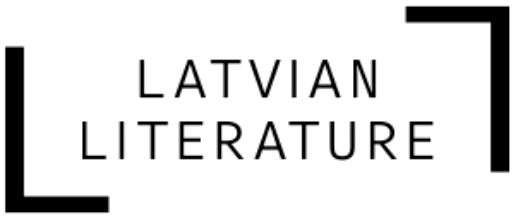 In 2016, the activities of the International House of Writers and Translators were significantly expanded, by creating a platform "Latvian Literature", which promotes the recognition and distribution of Latvian literature abroad, ensures international cooperation between publishers, literary agents, writers, translators and organizations working in the field of literature and publishing.
In 2016, the activities of the International House of Writers and Translators were significantly expanded, by creating a platform "Latvian Literature", which promotes the recognition and distribution of Latvian literature abroad, ensures international cooperation between publishers, literary agents, writers, translators and organizations working in the field of literature and publishing.
The "Latvian Literature" platform was created through a partnership of the three largest literary institutions in Latvia: the International Writers and Translators house, the Latvian Writers Union, and the Latvian Publishers Association.

he aim of the establishment of the International Writers’ and Translators’ House is to create a multifunctional international writer’s and translator’s centre, which promotes the development of literature, encourages cross-cultural dialogue and introduces the Latvian literary process to international circulation; to facilitate the decentralisation of the development of literature in Latvia by fostering a suitable cultural environment in regional Latvia. The International Writers’ and Translators, or Ventspils House is a place for creative literary work.
..The idea to create such a venue in Latvia belongs to writer Nora Ikstena, who was supported by the Minister of Culture Helēna Demakova, by establishing a successful collaborative partnership with the Ventspils Mayor Aivars Lembergs and the Director of the Latvian Literature Centre Marta Dziļuma.
Funding to ensure the basic running costs is planned yearly. Ventspils House applies for funding to ensure the creative process in the cultural project competitions of the State Cultural Capital Fund.
 In 2016, the activities of the International House of Writers and Translators were significantly expanded, by creating a platform "Latvian Literature", which promotes the recognition and distribution of Latvian literature abroad, ensures international cooperation between publishers, literary agents, writers, translators and organizations working in the field of literature and publishing.
In 2016, the activities of the International House of Writers and Translators were significantly expanded, by creating a platform "Latvian Literature", which promotes the recognition and distribution of Latvian literature abroad, ensures international cooperation between publishers, literary agents, writers, translators and organizations working in the field of literature and publishing.
The "Latvian Literature" platform was created through a partnership of the three largest literary institutions in Latvia: the International Writers and Translators house, the Latvian Writers Union, and the Latvian Publishers Association.
Lasīt vairāk
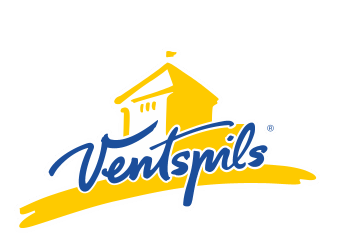
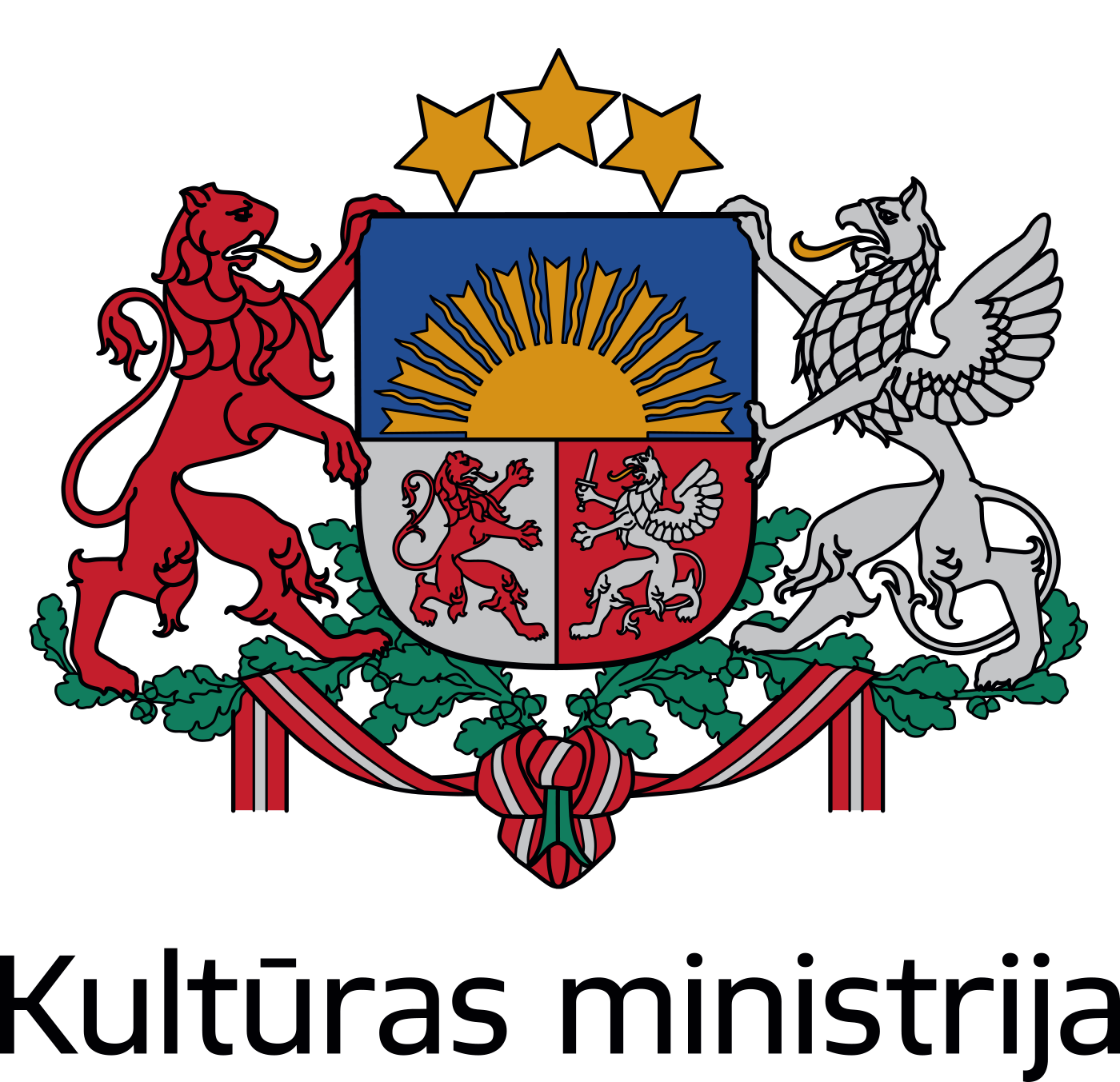

IA “Starptautiskā Rakstnieku un tulkotāju māja” ir bezpeļņas organizācija, kuras izveides mērķis ir radīt Latvijā daudzfunkcionālu starptautisku rakstnieku un tulkotāju centru, kas veicinātu literatūras attīstību, sekmētu starpkultūru dialogu un Latvijas literāro procesu iekļaušanos starptautiskā apritē, kā arī veicinātu literatūras attīstības procesa decentralizāciju Latvijā, attīstot atbilstošu kultūrvidi arī Latvijas reģionos. Ideja izveidot šādu vietu Latvijā pieder rakstniecei Norai Ikstenai, to atbalstīja kultūras ministre Helēna Demakova, atrodot veiksmīgu sadarbības risinājumu ar Ventspils pilsētas domes priekšsēdētāju Aivaru Lembergu un Latvijas Literatūras centra direktori Martu Dziļumu. Starptautiskā Rakstnieku un tulkotāju jeb Ventspils Māja ir vieta literātu radošam darbam. 2005. gada valsts budžetā tika atvēlēti līdzekļi ēkas rekonstrukcijai un iekārtošanai radošās rezidences vajadzībām. Kultūras ministrija no valsts budžeta 2006. gadam piesaistījusi LVL 85 000 Mājas darbības uzsākšanai un nodrošināšanai. Finansējums Mājas darbības pamatfunkciju nodrošināšanai tiek plānots ik gadus. Valsts kultūrkapitāla fonds kultūras programmu konkursā katru gadu Ventspils Mājai piešķir finansējumu radošā procesa nodrošinājumam. Papildus finansējums Mājas literāro pasākumu nodrošināšanai un stipendijām ir pateicoties Nordic Culture Point Ziemeļvalstu-Baltijas valstu Rezidenču atbalsta programai kopš 2009. gada līdz 2020.gadam. Ventspils Māja rakstniekiem un tulkotājiem piedāvā: vietu radošam darbam vienā no skaistākajām Latvijas pilsētām Baltijas jūras krastā Ventspilī, iespēju dzīvot un strādāt Ventspils Mājā 4 nedēļas, atklāt Ventspili pilsētu, kur satiekas vēsture un rītdiena, un Baltijas jūras piekrasti vienu no skaistākajām un iedvesmojošākajām krasta līnijām Eiropā, satikties ar citiem rakstniekiem un tulkotājiem no Latvijas, Baltijas valstīm, Eiropas un pasaules, iespēju iesaistīties radošos sadarbības projektos festivālos, semināros. Ventspils Māja atvērta arī semināriem, konferencēm, pieredzes apmaiņas darbnīcām un cita veida radošiem pasākumiem.

akstnieki un tulkotāji bieži mēdz apgalvot, ka viņu īstās mājas ir valoda. Lai kādās mēlēs viņi runātu un radītu, lai kur dzīvotu, lai kur ceļotu, patiesi, vienīgās viņu īstās mājas ir valoda. Vienlaikus racionāls un iracionāls brīnums, kas palīdz pārradīt realitāti. Izteikt, stāstīt savu un pasaules pieredzi dzejā, prozā, dramaturģijā, tulkojumos... Angļu rakstniece Virdžīnija Vulfa uzskatīja, ka no laicīgās pasaules labumiem nekas daudz, lai radītu, rakstniekam nav vajadzīgs, tikai nauda un sava istaba. Mūsdienu pasaulē, kurā rakstnieks kā ikviens sabiedrības pilsonis ir ierauts ikdienas nervozajā plūdumā, šī vajadzība saasinājusies kā jelkad. Tādēļ nav nekāds brīnums, ka tik iecienītas un mīlētas īpaši Eiropā kļuvušas rakstnieku un tulkotāju radošās mājas. Uz brīdi tu esi prom no ierastās dzīves, prom no ikdienas un saistošiem dzīves pienākumiem un atļaujies dārgo prieku būt pilna laika rakstniekam. Tu pārradi realitāti un esi kopā ar saviem domubiedriem, brāļiem un māsām valodā, un tevi pārņem mierinoša sajūta, ka ir daudz tādu šajā racionālajā un pragmātiskajā pasaulē, kas velta sevi grūtajam, skaistajam un ekskluzīvajam valodas darbam. Visbijas mājai Gotlandē, Lediga mājai Amerikā, Casa Pantrova Šveicē, Kesmu mājai Igaunijā un daudzām, daudzām citām tagad pievienojas Ventspils rakstnieku un tulkotāju māja Latvijā. Šeit plašajā pasaules kartē ir vēl viens punkts, kur dzīvo valoda, kur satiekas pieredzes, kas katra savā valodā stāsta to pašu mūžseno mistēriju, kurā piedalās dzīve, nāve un mīlestība. Bijusī vēsturiskā rātsnama māja, kas atrodas laukumā starp atjaunoto pilsētas bibliotēku un luterāņu baznīcu pārtapusi rakstnieku un tulkotāju mājā, dodot iespēju strādāt un satikties domubiedriem no visas plašās pasaules. Radīšanas celles, mūsdienīgi aprīkotas, tomēr nezaudējušas vēstures pieskārienu gatavas mājīgi uzņemt valodas ceļiniekus. Mājas iekšējais dārzs un šķīstītava jeb pirts patiesi rada sajūtu, ka pašam rakstīšanas procesam ir kāds sakars ar ticību, dievišķām atklāsmēm un padošanos grēcīgiem priekiem. Te viss ir vienuviet vientulība un sarunas, darbs un atelpa, dienišķā maize un vīns. Darba nogurdināts šīs mājas iemītnieks var doties klejojumos pa Ventspili sakoptu piejūras pilsētu, kuras katrā mājā, ieliņā, sētā un laukumā pagātne ir tikpat svarīga kā nākotne. Un, izgājis cauri zaļam parkam, valodas ceļinieks pēkšņi attopas jūras krastā. Un viņam ir brīvība doties, kurp acis rāda, uz vienu vai otru pusi kilometriem tālu stiepsies skaista, baltu smilšu krasta līnija. Tikai debesis, jūra vienā, zaļa meža strēle otrā pusē un gājējs, kas min krasta smilti un atbrīvo savas domas radīšanas mirklim. Kas zina, varbūt tieši te, Ventspils valodas mājā, taps šī gadsimta skaistākie valodas dzīves un mīlestības stāsti. Lai top! Nora Ikstena Lasīt vairāk


From 2009 to 2024, with the financial support of the Nordic Council of Ministers' Nordic-Baltic Residency Support Programme, more than 50 residents from the Nordic and Baltic countries have been supported with a grant of EUR 440 per month plus travel expenses. All professional writers and translators from the Nordic and Baltic countries can apply for the Nordic Culture Point supported programme by filling in the application form at www.ventspilshouse.lv. So far, the Nordic-Baltic scholarships have been awarded to: Tobias Breggren (Sweden), Mirja and Seppo Hovila (Finland), Caterina Cattaneo (Norway), Hrafn Andrés Harðarson (Iceland), Juris Kronbergs (Sweden / Latvia), Andres Ehin (Estonia), Ly Ehin (Estonia), Kare Bluitgen (Denmark), Gunstein Bakke (Norway), Andrius Jakuciunas (Lithuania), Heidi Granquist (Finland), Stase Gerviene (Lithuania), Andrei Ivanov (Estonia), Helena Sinervo (Finland), Esa Salminen (Finland), Tom Paxal (Finland), Maija Kauhanen (Finland), Laimantas Jonušys (Lithuania), Vladas Braziunas (Lithuania); Anja Lampela, Marja Bjork (Finland), Gunnar Waerness (Norway), Erik Begqvist (Sweden), Maarja Partna (Estonia), Henrika Andersson (Finland), Mårten Westö (Finland), Jone Ramunyte (Lithuania), Irena Aleksaite (Lithuania), Contra ( Estonia), Stase Gerviene (Lithuania), Aki Salmela (Finland), Ville Hytönen (Finland / Estonia), Annika Suna (Finland), Aušra Kaziliunaite (Lithuania), Maarja Kangro (Estonia), Heli Laaksonen (Finland), Daila Ozola (Latvia/Estonia), Lina Itagaki (Lithuania), Henrika Madelene Andersson (Finland), Reijo Roos (Estonia), Poul Lynggaard Damgaard (Danmark), Mirja Leea Lyylikki Hovila (Finland), Rakel Helmsdl (Faroe island), Peeter Sauter (Estonia), Jüri Talvet (Estonia), Reeli Reinaus (Estonia), Heli Allik (Estonia), Aiste Zemaityte (Lithuania), Olev Remsu (Estonia), Gunstein Bakke (Norway, Joanna Ellmann (Estonia), Minna Saarelma-Paukkala (Finland), Kuido Merits (Estonia), Contra (Estonia), Maryliis Teinfeldt-Grins (Estonia), Laura Liubinavičiute (Lithuania) etc. Special tribute we pay to Juris Kronbergs From 2023 to 2024, with the financial support of the Nordic Council of Ministers, 19 residents from Ukraine have been supported with a grant of EUR 440 per month plus travel expenses. The programme will continue until 2026. Any Ukrainian author or translator can apply for the Nordic Culture Point supported programme by filling in the application form at www.ventspilshouse.lv. Up to now, the Nordic Culture Point grant has been awarded to the following Ukrainian writers/ translators: Zanna Sloniowska, Tetiana Postavna, Maryna Ponomarenko, Roksolana Zharkova, Anastasiia Marchenko, Lina Melnyk, Inna Volosevych, Olha Boinitska, Kateryna Devdera, Zanna Sloniowska, Ivan Riabchyi, Olha Svyripa, Petro Tarashchuk, Nataliia Matolinets, Mariana Kozulina, Ganna Yovka, Larysa Andriievska, Nataliia Belchenko, Olena Stepanenko Ventspils House, together with other European literary translation centers and RECIT, is implementing a three-year (2021 - 2023) Creative Europe project Translation in Motion (TiM) to promote the exchange of literary translations between EU countries and the Western Balkans. The project involves France (Arla), Serbia (Belgrade), Montenegro (Cetinje), Sweden (Gotland), Macedonia (Skopje), Bulgaria (Sofia), Albania (Tirana) and the United Kingdom (Norwich). The Ventspils House hopes to attract professional translators who could become translators of Latvian literature into one of the Western Balkan languages in the future, as well as to establish closer cooperation with literary organizations of the Western Balkan countries. As a result of the announced competition, the Macedonian translator Elizabeta Lindner and Serbian translator Vera Horvat have been confirmed as the winner of the literary translation residency and will visit Ventspils in 2021 and 2022 to learn Latvian and translate contemporary Latvian poets into Macedonian and Serbian. The Latvian Literature Award (LALIGABA) is the most important event of the year in the field of literature in Latvia. It provides professional evaluation of literary works and recognition of the authors for the most outstanding works of the year published in Latvian literature. The award is jointly organized by: Ventspils House and the Latvian Writers' Union. The award is supported by the Ministry of Culture of the Republic of Latvia and Baltic International Bank. Every two years, Ventspils House and Ventspils City Council award an international prize “Silver Ink” for work in poetry, prose, and translation into and from the Latvian language. The award is invented to recognize the most outstanding works of the Ventspils House and to honor authors and translators. The amount of the prize is 900 EUR, but the author of the prize is the artist Jānis Kupčs. The following authors, poets and translators have received the award so far: 2024 Linda Mence (poetry), Svens Kuzmins (prose), Laura Laurušaite (translation from Latvian), Inta Šmite (translation from Latvian) 2022 Vladas Braziūnas (poetry), Lauris Gundars (prose), Mirja Hovila (translation from Latvian), Kaspars Zalāns (translation from Latvian) 2020 Katrīna Rudzīte (poetry), Kirill Kobrin (prose), Dens Dimiņš (translation into Latvian), Jayde Will (translation from Latvian) 2018 Gunta Šnipke (poetry), Sun Vei (China, prose), Margherita Carbonaro (Italy, translation from Latvian), Inga Mežaraupe (translation into Latvian) 2016 Maima Grīnberga (translation) Jānis Rokpelnis (poetry) Nora Ikstena (prose) 2014 Gundega Repše (prose), Inese Zandere (Poetry), Naira Hachatrjan (Armenia, translation) 2012 Eduards Aivars (poetry), Inga Žolude (prose), Dace Meiere (translation) 2010 Kristiina Ehin (Estonia, poetry), Andra Manfelde (prose), Aleksandr Zapol (translation), Maira Asare (public sympathy) Ventspils City Council annually awards two excellence scholarships to Latvian authors - young, promising and rich. The scholarship provides for a cash prize of 500 EUR and one month in Ventspils House. Scholarships have so far been awarded to the following meritorious authors: Valdis Bisenieks, Andris Kolbergs, Knuts Skujenieks, Imants Auziņš, Uldis Bērziņš, Leons Briedis, Gundega Blumberga, Inta Čaklā, Juris Zvirgzdiņš, Viesturs Vecgrāvis, Gundega Grīnuma, Viktors Avotiņš and Guntars Godiņš. And for the following young promising writers: Andris Ogriņš, Arvis Viguls, Artis Ostups, Alise Zariņa, Jānis Vādons, Jānis Joņevs, Zanda Tereško, Toms Treibergs, Svens Kuzmins, Valters Dakša, Krista Anna Belševica, Marija Luīze Meļķe and Elvīra Bloma.
The Ventspils House has been publishing the Annual every two years since 2008, compiling fragments of texts created at the House, as well as translating Latvian texts into English and texts of foreign authors into Latvian. The book serves as a great selection of the latest unpublished Latvian and foreign literature, as well as it is a source of sample translations of Latvian literature that can be used for literature export purposes. The artists of all Annuals are Aivars Vilipsons and Katrīna Vasilevska. The books are available at the Ventspils House Library. In order to promote literary processes in the region, Ventspils House in cooperation with Ventspils Library and the festival “Prose Readings” organizes a literary competition “Kurzeme Prose Readings”. Prose works of all ages by Kurzeme authors who write prose can be submitted to the competition. The winners are chosen by five members of the jury and the prize is participation in the festival "Prose Readings" in Riga. The winners of Kurzeme Prose Readings are: 2022 Gunta Šnipke, Ēriks Vilsons 2021 Jana Egle, Anna Paula Gruzdiņa, Ligita Paegle 2020 Laura Mierkalne, Krišs Grunte, Guna Roze 2019 Gunta Šnipke, Rūta Holandere 2018 Guna Roze, Alise Redviņa, Laura Mierkalne 2017 Guna Roze, Gundega Rezevska 2016 Linda Skranda, Laura Vinogradova 2015 Jana Egle, Undīne Arāja, Ilga Liepiņa 2014 Nauris Lukševics un Mārtiņš Lindenbergs Every year Ventspils House offers members of the Seaside Cities Literary Academy together with students of Liepaja University Master's study program "Writing Studies" exchange seminars in creative writing, inviting Huse residents to lead lectures, writing and translation workshops, as well as give their experience to new authors. Poet Laura Andersone says: “It is always a good and interesting adventure! Getting to know the author's creative experience, writing techniques or sources of inspiration, sometimes even a small part of the author's life story, is quite engaging, because not only does one of the authors feel "on one wave" - like someone who has met someone like him." In cooperation with the Children's and Youth Literature Council, Ventspils House organizes the International Jānis Baltvilks Prize in Children's Literature, which is the highest recognition in the field of children's literature in Latvia - for writers, poets, translators and artists. Ventspils House offers the winners of the Jānis Baltvilks Prize one month at the residence.Nordic - Baltic residencies

Residency programme for Ukrainian professional literates

Translation in Motion residencies
Latvian Literature Award
Award “Silver Ink”
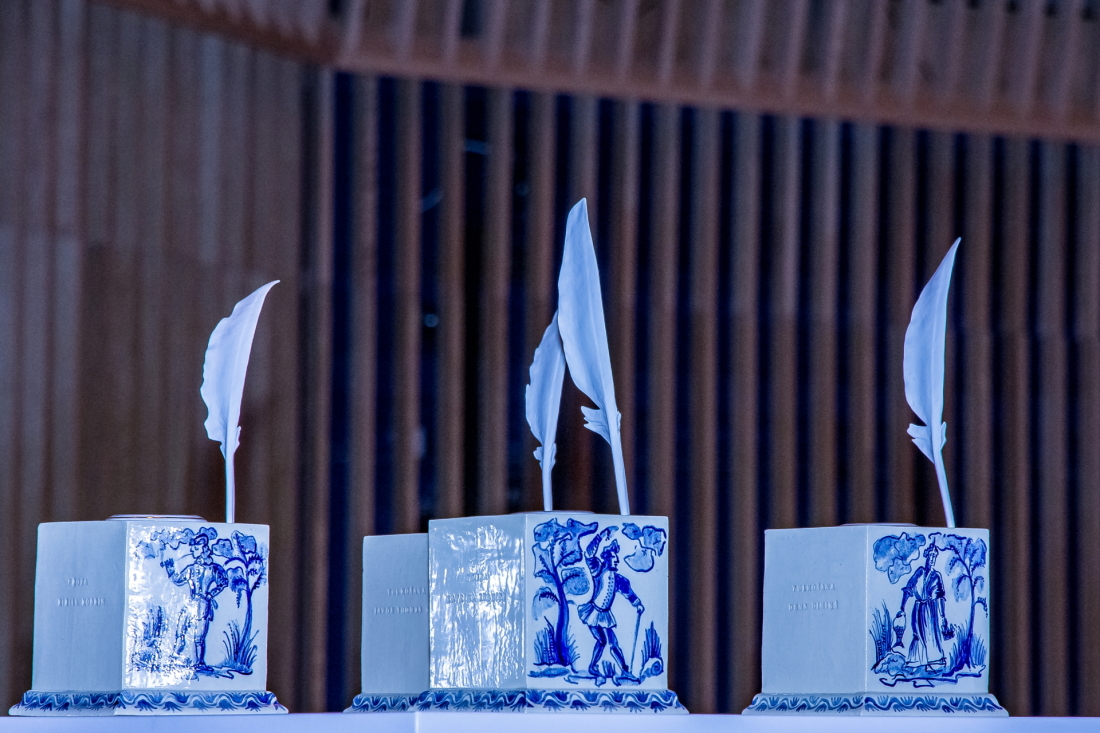
Ventspils City Council scholarships

Annual

Competition "Kurzeme Prose Readings"
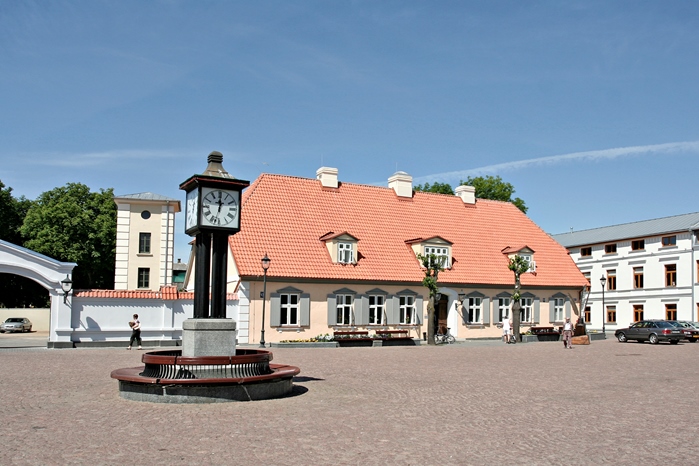
Creative writing studies
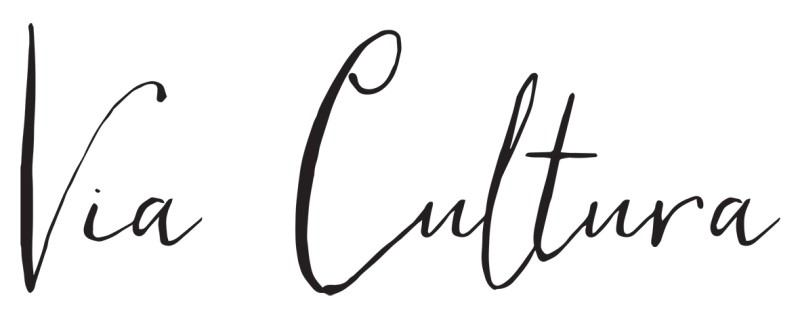
International Jānis Baltvilks Prize in Children's Literature
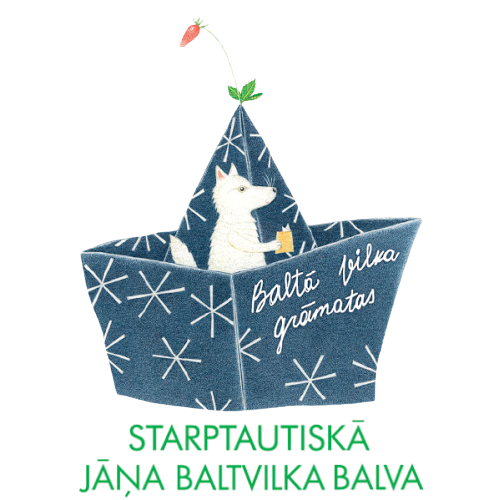

he residency is located in the premises of the former town hall belonging to the city of Ventspils, built in the 18th century and located in the cultural and historical center of Ventspils. (The architect of the house and interior designer Ēriks Cērpiņš.) It has been given for the use of writers and translators for 40 years.
The building has been rebuilt, adapted for creative work and literary activities, with seven residential premises with internet connection, reading room, kitchen, parking facilities, small garden and recreation areas.
The centre can house nine residents at one time. There are two twin residential rooms. Two of the residential rooms have been adapted for people with special needs.
Residents have access to everything necessary for everyday life - bedspreads, towels, washing machine, iron, hair dryer, vacuum cleaner, room cleaners, etc.
The kitchen of the house is fully equipped, there are two refrigerators, two electric stoves and a dishwasher, Clay dishes for Ventspils House were specially prepared by the artist Arnis Preiss. Especially nice is a wood-burning stove at the dining room.
There are four bikes available for residents.
A projector, screen, TV, music player and office equipment are available for events.
There is a cat Vatsons in the house. Information for those who might have an allergy.

he residency is located in the premises of the former town hall belonging to the city of Ventspils, built in the 18th century and located in the cultural and historical center of Ventspils. (The architect of the house and interior designer Ēriks Cērpiņš.) It has been given for the use of writers and translators for 40 years.
..
The building has been rebuilt, adapted for creative work and literary activities, with seven residential premises with internet connection, reading room, kitchen, parking facilities, small garden and recreation areas.
The centre can house nine residents at one time. There are two twin residential rooms. Two of the residential rooms have been adapted for people with special needs.
Residents have access to everything necessary for everyday life - bedspreads, towels, washing machine, iron, hair dryer, vacuum cleaner, room cleaners, etc.
The kitchen of the house is fully equipped, there are two refrigerators, two electric stoves and a dishwasher, Clay dishes for Ventspils House were specially prepared by the artist Arnis Preiss. Especially nice is a wood-burning stove at the dining room.
There are four bikes available for residents.
A projector, screen, TV, music player and office equipment are available for events.
There is a cat Vatsons in the house. Information for those who might have an allergy.
Lasīt vairāk
Based on the European and world experience in promoting creative processes and ensuring international literary circulation, the Ministry of Culture of the Republic of Latvia in cooperation with the city of Ventspils and with a financial support of the State Culture Capital Foundation has implemented an ambitious project - the International Writers’ and Translators’ House in Ventspils. Ventspils House offers writers and translators: a place for creative work in one of the most beautiful costal cities - Ventspils, an opportunity to live and work in Ventspils House for 4 weeks, meet other writers and translators, an opportunity to get involved in creative projects. Latvian authors, Latvian literary translators, foreign fiction translators, foreign authors, Latvian and foreign researchers whose research work is related to literature have the opportunity to apply for creative work at the Ventspils House. Application form is available on the website of the Ventspils House. Applications are accepted electronically and by post. The application includes: applicant's autobiography, a description of the intended creative work and the planned period of residence (it is desirable to apply for the residency no later than 2 months before the planned start of residence). Applications from the potential residents are evaluated by the Experts' Commission. The Commission shall examine the applications and take a decision at least once every two months. Ventspils House makes an agreement with the selected residents. State Culture Capital Foundation supports grants (320 EUR for 4 weeks) for creative work at the Ventspils House, the award of which is decided by the Experts' Commission. Every foreign resident has to pay 30 EUR per week as part of the accommodation fee. A report on the time spent at the Ventspils House and the creative work performed must be submitted within 10 (ten) working days after the end of the residence. The administration of the Ventspils House has the right to request a refund if the resident has not complied with the internal rules of the Ventspils House and has not performed appropriate creative work. Translators' Residency Program is being implemented with a support of the Ministry of Culture to promote the translations of Latvian literature. The aim of the Translators’ Residency Program is to enable foreign translators to improve their knowledge of the Latvian language while residing in order to promote the translation of high-quality original works of Latvian literature into other languages. Foreign professional translators who translate or plan to translate Latvian literature have the right to submit applications for the Translators' Residence Program competition. The application form for the Translators' Residency Program is accepted electronically (ventspilshouse@ventspilshouse.lv) and by post (Annas Street 13, Ventspils LV-3601) throughout the year. The application form is available on the website www.ventspilshouse.lv. In addition to the application form, it is necessary to submit a motivation letter describing, why you want to participate in the Translators' Residence programme, naming the list of Latvian literary works translated so far, as well as mentioning future intentions in translating Latvian literature. The Ministry of Culture grants a scholarship (400 EUR for 4 weeks) for creative work at the Ventspils House, the award of which is decided by the Experts'Commission. Program covers also expenses for Latvian language classes, as well as travel expenses. So far, the following translators have participated in the Translatiors' program with the support of MoC: Jose Reina Luis Palazon (Spain), Margherita Carbonaro (Italy), Jayde Will (USA), Maya Gogoladze (Georgia), Olga Anna Wieviora (Poland), Alexander Filuyta (Germany) and Emmanuele Sandron (Belgique), Anja Lampela (Finland), Ryan wan Winkle (Great Britain, Sven Otto (Germany), Lil Reif (Germany), Rhys Trimble (Great Britain), Richard O'Brien (Great Britain), Jonas Stenbacka (Sweden), Kevin M.F. Platt (USA), Laimantas Jonušys (Lithuania), Elizabeta Lindner (NorthMacedonia), Lina Melnyk (Ukraine), Vera Horvat (Serbia), Brenda Lelie (Netherlands) In 2024 we plan following translators to join - Ayumi Kurosawa (Japan), Milosz Waligorski (Poland) Residency program
Translators’ Residency program
|
|
Inga Pizāne Inga Pizāne (1986) is a Latvian poet. Pizāne has studied education in Latvia and Sweden, simultaneously attending lectures at the Literary Academy. Her first collection of poems titled „Tu neesi sniegs" was published in 2016 by "Jānis Roze". Her second poetry collection "Siena, ko nosiltināt" (2019) was awarded Ojārs Vācietis Literary Prize in Poetry (2020). She has participated in many international poetry festivals in the UK, Finland, Slovakia, Lithuania, New York etc. Loves cinema, photography, literature and flowers. Her third poetry collection "Tas pats izmisums, tikai ar puķēm" is coming out in September 2022. English translation of her poetry was published by A Midsummer Night's Press in 2018, NY titled "Having Never Met", translated by Jayde Will. Her poetry has been also translated into German, Ukrainian, Italian and other languages. |
|
|
Nora Ikstena Nora Ikstena (1969) - writer. Writes stories, novels, biographies and essays. Nora Ikstena's works have been translated into English, German, French, Russian, Estonian, Lithuanian, Macedonian, Danish, Swedish, Georgian, Hindi, Italian, etc. languages. The writer is actively involved in the development of state cultural policy. Received the Excellence in Culture Award from the Ministry of Culture.
|
|
|
Guntars Godiņš Guntars Godiņš (1958) – poet and translator. He entered poetry in the second half of the 1970s and belongs to the so-called generation of Klāvs Elsbergs (also Māris Melgalvs, Pēters Brūveris, Egils Zirnis), who harshly and ironically treated Soviet double standards, creating a new view of the value system of life unlike previous generations of Latvian poets. The author of five collections of poems, whose poetry at first lyrical, a little later - ironic, angry, unattractive voice, also replaces poetic experiments in graphic poetry with a poetic observation, focus on the moment, small things and silence. He has translated about 40 works, at the same time being a cultural politician, which deepens the literary ties between Latvian, Estonian, Finnish and Swedish literature. Worked in the diplomatic service as a cultural attaché in the Republic of Estonia.
|
|
|
Raimonds Ķirķis Raimonds Ķirķis (1997) - poet, poetry translator and literary critic. He studied cultural theory and management at the Latvian Academy of Culture, and is currently studying for a master's degree at the Faculty of History and Philosophy of the University of Latvia. Since 2018 he has been working at the Rainis and Aspazija House. He has translated works by Vistan Hugh Oden, T. S. Eliot, Sohrab Sepehri, Forugh Farrokhzad and other poets. One of the 7 poets whose texts are included in the anthology of young poets ‘How to Overcome an Itch in the Skull’ compiled by Artis Ostups and published by Walter Daksha. Host of the literary programme ‘Bron-Hīts’ on radio NABA. Since 2016, he has published reviews and articles in Punctum, Satori, Domuzīme, Diena and Teātra Vēstnesis. In the end of 2019, Raimonds Ķirķis' debut poetry collection ‘Maps’ was published, for which he received the 2020 Poetry Days Award and was nominated for the Latvian Literature Award in the category ‘Brightest Debut’.. |
|
|
Dens Dimiņš Translates fiction from French, Icelandic, Greek, Italian, Bulgarian, Dutch, German, Russian and Albanian.
|

mportant information on Ventspils. Travel guidance from Riga to Ventspils Most often residents travel through the Riga Airport, so there is some guidance to get from the Riga Airport till From the Riga Airport till Ventspils. After you arrive at the Riga Airport you take a public bus No 22 and go till the city centre. It will take some 45 minutes. You can take also taxi, of course, but please before you take a taxi make sure how much it will cost as lately we got incidents with very high costs. By taxi it takes some 15 – 20 minutes. The bus ticket you buy at the driver in the bus and it costs 2 EUR. You get out at the stop “Autoosta/Central Bus Station” in front of the shopping mole „Stockman”. From the Bus station to Ventspils. From the bus stop “Autoosta/Central Bus Station”, if you go few steps back and turn left, you come to the Central Bus Station of Riga and there just buy the ticket to Ventspils. The ticket costs around 7,55 EUR. You can buy it also at the driver in the bus. And in internet https://www.1188.lv/en/transport/buses. The travel takes three hours. The House is in five minutes from the Bus Station. You should go to the direction of the Old Town. If you arrive in Riga by train, then it is better to ask someone the way to the bus station, it is behind the shop “Stockman” Ferry from Sweden. The Ferry Terminal in Ventspils is very close to the House (5 min), go to the direction of the Old Town. Address of the House - Annas iela 13.

mportant information on Ventspils. Travel guidance from Riga to Ventspils Most often residents travel through the Riga Airport, so there is some guidance to get from the Riga Airport till From the Riga Airport till Ventspils. After you arrive at the Riga Airport you take a public bus No 22 and go till the city centre. It will take some 45 minutes. You can take also taxi, of course, but please before you take a taxi make sure how much it will cost as lately we got incidents with very high costs. By taxi it takes some 15 – 20 minutes. The bus ticket you buy at the driver in the bus and it costs 2 EUR...You get out at the stop “Autoosta/Central Bus Station” in front of the shopping mole „Stockman”. From the Bus station to Ventspils. From the bus stop “Autoosta/Central Bus Station”, if you go few steps back and turn left, you come to the Central Bus Station of Riga and there just buy the ticket to Ventspils. The ticket costs around 7,55 EUR. You can buy it also at the driver in the bus. And in internet https://www.1188.lv/en/transport/buses. The travel takes three hours. The House is in five minutes from the Bus Station. You should go to the direction of the Old Town. If you arrive in Riga by train, then it is better to ask someone the way to the bus station, it is behind the shop “Stockman” Ferry from Sweden. The Ferry Terminal in Ventspils is very close to the House (5 min), go to the direction of the Old Town. Address of the House - Annas iela 13. Lasīt vairāk

he building at 13 Anna Street, Ventspils, was built in the 18th century as the home of a resident of Ventspils. The earliest mention of Anna Street is on the 1797 map of Ventspils. It was called Anna Street for a long period of time, until it was renamed as Ugunsdzēsēju (Fire fighter) Street in 1948. The original name of the street was reinstated in 1989. Judging from the archaeological layers, which are our only source of information about the age of the buildings in this part of the city, it is improbable that there were any other buildings on this site before this. Written sources suggest that the earliest buildings on today’s Tirgus (Market) Square were built in the 17th century and the original town hall was also located along the southern edge of the Tirgus Square. There are no remaining images of this building, but there is written evidence that it was a one-storey building with a symmetrical facade and a small tower in the centre. It was planned to install a clock in the tower, but whether this was actually done is not known. The current Tirgus Square was probably called the Town Square at this time. The St. Nicholas Evangelical Lutheran Church, built in 1835, is located along the eastern edge of the current Town Square. It had been planned to build the church approximately 100 years earlier, but its completion was delayed by the wars of the 18th century and plague epidemics. Unfinished church walls stood in the location of today’s church, which had to be demolished before new construction could begin. The square on which the church was built was then called Štrauhs Square. It is apparent that this vicinity was intended to be a place of substantial architecture since the early 18th century. The town hall was located in the previously mentioned location near the Tirgus Square until the mid-19th century. By 1850 the condition of the building was so bad that it had to be either rendered or totally overhauled. The City Council then bought the building opposite the recently built church from Peter von Heyking for 3250 silver roubles. There is little information about the Heyking family, it is also not know if this family was responsible for building this structure. There is evidence of a Ventspils Captain Johann Friedrich Kazimir von Heyking (1801-1827), who died in 1827 at the age of 75, who therefore could not have built this building; and about Baroness Jakobin von Heyking, who married a Ventspils goldsmith, Krigers, and died in 1855. In turn, Baron A. Heyking is mentioned in A. Rihters Courland address book of 1912. Therefore this family lived in Ventspils for a long period, although the 18th century citizen’s register-which is incomplete-does not suggest any possible candidates for the builder of this building. At the end of the 19th century an idea surfaced to construct a new town hall in Ventspils. The building was designed by the popular Liepāja city architect Max Paul Bertchy (1871-1902), but the project never came to fruition. It is believed that the Ventspils Town Council, and later the Ventspils City Council were housed in the building at 13 Anna Street right up until the establishment of the independence of the Latvian State, because there is no indication that it was located elsewhere during the German occupation. Later the Ventspils Civic Authority was housed on the eastern edge of the Market Square-in today’s law-court at 14 Katrīnas Street, while in 1927 the city bought the residence built by another Ventspils patrician family-the Gutschmit family-at 2 Kuldīgas Street, for 50 000 lats, where the Civic Authority was located until 1940. The building at 13 Anna Street is connected to the origins of a number of Ventspils cultural institutions. The city library was housed here from its foundation in 1919 until 1937 when it finally moved to its permanent home at 2 Akmeņu Street, in a building that was purchased for this reason by the city from Latvia’s Credit Bank. The most recently established city museum was also housed here since its foundation: the Ventspils Teacher’s Union Museum, established in 1928, which was rehoused in more spacious premises at 2 Kuldīgas Street in the Civic Authority’s building in 1939. It was decided to devote the old library rooms of the town hall for the use of the fire fighting squad. The fire-fighting depot has been located next door to the town hall for a long time. Originally it was a wooden building, built in the mid-19th century, and it contained all of the fire fighting equipment that belonged to the city. In 1872 this depot building together with its contents was handed over to the Ventspils Voluntary Fire Brigade, established in 1871. By 1937 the building had been inhabited for quite some time, and was totally rebuilt.

he building at 13 Anna Street, Ventspils, was built in the 18th century as the home of a resident of Ventspils. The earliest mention of Anna Street is on the 1797 map of Ventspils. It was called Anna Street for a long period of time, until it was renamed as Ugunsdzēsēju (Fire fighter) Street in 1948. The original name of the street was reinstated in 1989. .. Judging from the archaeological layers, which are our only source of information about the age of the buildings in this part of the city, it is improbable that there were any other buildings on this site before this. Written sources suggest that the earliest buildings on today’s Tirgus (Market) Square were built in the 17th century and the original town hall was also located along the southern edge of the Tirgus Square. There are no remaining images of this building, but there is written evidence that it was a one-storey building with a symmetrical facade and a small tower in the centre. It was planned to install a clock in the tower, but whether this was actually done is not known. The current Tirgus Square was probably called the Town Square at this time. The St. Nicholas Evangelical Lutheran Church, built in 1835, is located along the eastern edge of the current Town Square. It had been planned to build the church approximately 100 years earlier, but its completion was delayed by the wars of the 18th century and plague epidemics. Unfinished church walls stood in the location of today’s church, which had to be demolished before new construction could begin. The square on which the church was built was then called Štrauhs Square. It is apparent that this vicinity was intended to be a place of substantial architecture since the early 18th century. The town hall was located in the previously mentioned location near the Tirgus Square until the mid-19th century. By 1850 the condition of the building was so bad that it had to be either rendered or totally overhauled. The City Council then bought the building opposite the recently built church from Peter von Heyking for 3250 silver roubles. There is little information about the Heyking family, it is also not know if this family was responsible for building this structure. There is evidence of a Ventspils Captain Johann Friedrich Kazimir von Heyking (1801-1827), who died in 1827 at the age of 75, who therefore could not have built this building; and about Baroness Jakobin von Heyking, who married a Ventspils goldsmith, Krigers, and died in 1855. In turn, Baron A. Heyking is mentioned in A. Rihters Courland address book of 1912. Therefore this family lived in Ventspils for a long period, although the 18th century citizen’s register-which is incomplete-does not suggest any possible candidates for the builder of this building. At the end of the 19th century an idea surfaced to construct a new town hall in Ventspils. The building was designed by the popular Liepāja city architect Max Paul Bertchy (1871-1902), but the project never came to fruition. It is believed that the Ventspils Town Council, and later the Ventspils City Council were housed in the building at 13 Anna Street right up until the establishment of the independence of the Latvian State, because there is no indication that it was located elsewhere during the German occupation. Later the Ventspils Civic Authority was housed on the eastern edge of the Market Square-in today’s law-court at 14 Katrīnas Street, while in 1927 the city bought the residence built by another Ventspils patrician family-the Gutschmit family-at 2 Kuldīgas Street, for 50 000 lats, where the Civic Authority was located until 1940. The building at 13 Anna Street is connected to the origins of a number of Ventspils cultural institutions. The city library was housed here from its foundation in 1919 until 1937 when it finally moved to its permanent home at 2 Akmeņu Street, in a building that was purchased for this reason by the city from Latvia’s Credit Bank. The most recently established city museum was also housed here since its foundation: the Ventspils Teacher’s Union Museum, established in 1928, which was rehoused in more spacious premises at 2 Kuldīgas Street in the Civic Authority’s building in 1939. It was decided to devote the old library rooms of the town hall for the use of the fire fighting squad. The fire-fighting depot has been located next door to the town hall for a long time. Originally it was a wooden building, built in the mid-19th century, and it contained all of the fire fighting equipment that belonged to the city. In 1872 this depot building together with its contents was handed over to the Ventspils Voluntary Fire Brigade, established in 1871. By 1937 the building had been inhabited for quite some time, and was totally rebuilt. Lasīt vairāk
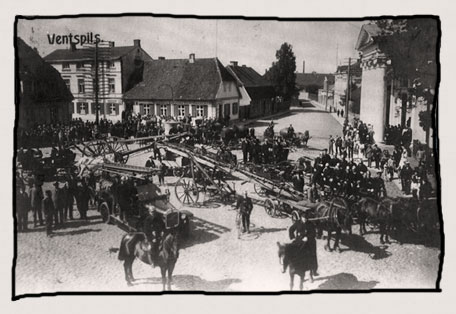
COOPERATION PARTNERS
Ministry of Culture
Latvian Literature
Ventspils City Council
State Culture Capital Foundation
Library of Ventspils
Writers’ Union of Latvia
Institute of Literature, Folklore and Art of the University of Latvia
Transartists
Resartis
RECIT Network of translators’ houses
European Education and Culture Executive Agency
Nordic Council of Ministers



